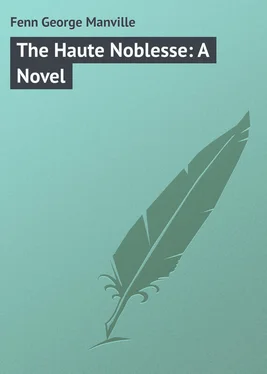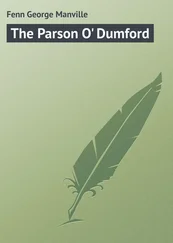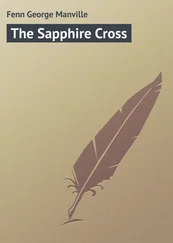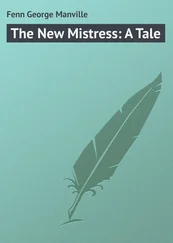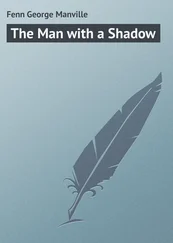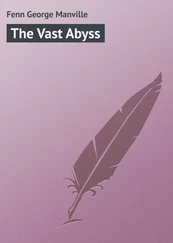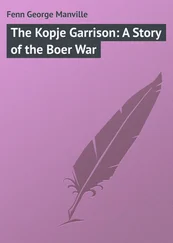George Fenn - The Haute Noblesse - A Novel
Здесь есть возможность читать онлайн «George Fenn - The Haute Noblesse - A Novel» — ознакомительный отрывок электронной книги совершенно бесплатно, а после прочтения отрывка купить полную версию. В некоторых случаях можно слушать аудио, скачать через торрент в формате fb2 и присутствует краткое содержание. Жанр: foreign_prose, на английском языке. Описание произведения, (предисловие) а так же отзывы посетителей доступны на портале библиотеки ЛибКат.
- Название:The Haute Noblesse: A Novel
- Автор:
- Жанр:
- Год:неизвестен
- ISBN:нет данных
- Рейтинг книги:5 / 5. Голосов: 1
-
Избранное:Добавить в избранное
- Отзывы:
-
Ваша оценка:
- 100
- 1
- 2
- 3
- 4
- 5
The Haute Noblesse: A Novel: краткое содержание, описание и аннотация
Предлагаем к чтению аннотацию, описание, краткое содержание или предисловие (зависит от того, что написал сам автор книги «The Haute Noblesse: A Novel»). Если вы не нашли необходимую информацию о книге — напишите в комментариях, мы постараемся отыскать её.
The Haute Noblesse: A Novel — читать онлайн ознакомительный отрывок
Ниже представлен текст книги, разбитый по страницам. Система сохранения места последней прочитанной страницы, позволяет с удобством читать онлайн бесплатно книгу «The Haute Noblesse: A Novel», без необходимости каждый раз заново искать на чём Вы остановились. Поставьте закладку, и сможете в любой момент перейти на страницу, на которой закончили чтение.
Интервал:
Закладка:
He had had his breakfast and taken his seat out in the sunshine, when he became aware of the fact that Duncan Leslie was coming down from the mine buildings above, and he hailed him with a snarl and the above words.
“Glorious morning.”
“Humph! Yes,” said the old man, looking up at the handsome young mine-owner with his face all in lines, “but what’s that got to do with you?”
“Everything. Do you suppose I don’t like fine weather?”
“I thought you didn’t care for anything but money grubbing.”
“Then you were mistaken, because I do.”
“Nonsense! You think of nothing but copper, spoiling the face of nature with the broken rubbish your men dig out of the bowels of the earth, poisoning the air with the fumes of those abominable furnaces. Look at that!”
The old man raised his stick and made a vicious dig with it in the direction of the mine.
“Look at what?”
“That shaft. Looks like some huge worm that your men disturbed down below, and sent it crawling along the hill slope till it could rear its abominable head in the air and look which way to go to be at rest.”
“What an idea! It isn’t pretty looking. I must say.”
“Pretty looking! No. Why do you have it then?”
“It was there when I bought the mine, and it answers its purpose.”
“Bah! What purpose? To make money?”
“Yes; to make money. Very useful thing, Mr Leslie.”
“Rubbish! You’re as bad as Van Heldre with his ships and his smelting works. Money! Money! Money! Always money, morning, noon and night. One constant hunt for the accursed stuff. Look at me!”
“I was looking at you, old fellow; and studying you.”
“Humph! Waste of time, unless you follow my example.”
“Then it will be waste of time, sir, for I certainly shall not follow your example.”
“Why not, boy? Look at me. I have no troubles. I pay no rent. My wants are few. I am nearly independent of trades-people and tax men. I’ve no slatternly wife to worry me, no young children to be always tumbling down the rocks or catching the measles. I’m free of all these troubles and I’m a happy man.”
“Well, then, your appearance belies you, sir, for you do not look it,” said Leslie, laughing.
“Never you mind my appearance,” said Uncle Luke sharply. “I am happy; at least, I should be, if you’d do away with that great smoky chimney and stop those rattling stamps.”
“Then I’m afraid that I cannot oblige you, neighbour.”
“Humph! Neighbour!”
“I fancy that an unbiassed person would blame you and not me.”
“Of course he would.”
“He’d say if a man chooses to turn himself into a sort of modern Diogenes – ”
“Diogenes be hanged, sir! All a myth. I don’t believe there ever was such a body. And look here, Leslie, I imitate no man – no myth. I prefer to live this way for my own satisfaction, and I shall.”
“And welcome for me, old fellow; only don’t scold me for living my way.”
“Not going to. Here, stop! I want to talk to you. How’s copper?”
“Up a good deal, but you don’t want to know.”
“Of course I don’t. But look here. What do you think of my nephew?”
“Tall, good-looking young fellow.”
“Humph! What’s the good of that? You know all about him, of course?”
“I should prefer not to sit in judgment on the gentleman in question.”
“So I suppose. Nice boy, though, isn’t he?”
Leslie was silent.
“I say he’s a nice boy; isn’t he?” cried the old man, raising his voice.
“I heard what you said. He is your nephew.”
“Worse luck! How is he getting on at Van Heldre’s?”
“I have not the least idea, sir.”
“More have I. They won’t tell me. How about that friend of his? What do you think of him?”
“Really, Mr Vine,” said Leslie laughing, “I do not set up as a judge of young men’s character. It is nothing to me.”
“Yes, it is. Do you suppose I’m blind? Do you suppose I can’t tell which way the wind blows? If I were young, do you know what I should do?”
“Do away with the chimney shaft and the stamps,” said Leslie, laughing.
“No; I should just get hold of that fellow some night, and walk him to where the coach starts.”
Leslie’s face looked warm.
“And then I should say, ‘Jump up, and when you get to the station, book for London; and if ever you show your face in Hakemouth again I’ll break your neck.’”
“You must excuse me, Mr Luke; I’m busy this morning,” said Leslie; and he walked on and began to descend the steep path.
“Touched him on the tender place,” said Uncle Luke, with a chuckle. “Humph! wonder whether Louie will come and see me to-day.”
Duncan Leslie went on down the zig-zag cliff path leading from the Wheal Germains copper mine to the town. It was a picturesque way, with a fresh view at every turn west and east; and an advanced member of the town board had proposed and carried the suggestion of placing rough granite seats here and there in the best parts for resting those who climbed, and for giving others attractive places for sunning themselves and looking out to sea.
The plan was a great success, and these seats were largely patronised by the fishermen in the case of those nearest the shore, where they could follow out their favourite pastime to the full, and also by the towns-people, especially by the invalids and those young folk who had arrived at the billing and cooing stage of life, when there are only two people in the world – themselves.
About half way down Leslie passed an invalid, who had taken possession of a seat, and was gazing right away south, and dreaming of lands where the sun always shone – wondering whether the bright maiden Health could be found there.
Lower still Leslie was going on thoughtfully, pondering on Uncle Luke’s hints, when the blood suddenly flushed into his cheeks, his heart began to beat rapidly, and he increased his pace. For there unmistakably were two ladies going down the zig-zag, and there were no two others in Hakemouth could be mistaken for them.
He hurried on to overtake them. Then he checked himself.
“Where had they been?”
His sinking heart suggested that they had been on their way to visit Uncle Luke, but that they had caught sight of him, and in consequence returned.
His brow grew gloomy, and he walked slowly on, when the blood flushed to his cheeks again, as if he had been surprised in some guilty act, for a sharp voice said —
“No, Mr Leslie; you would not be able to overtake them now.”
He stopped short, and turned to the warm sheltered nook among the rocks where Aunt Margaret was seated; her grey lavender dress was carefully spread about her, her white hair turned back beneath a black velvet satin-lined hood, and a lace fichu pinned across her breast.
“You here, Miss Vine?” said Leslie, hiding his annoyance.
“Yes; and I thought I would save you a thankless effort. I know these paths so well, and they are very deceptive as to distance. You could not overtake the girls unless you ran.”
“I was not going to try and overtake them, Miss Vine,” said Leslie coldly.
“Indeed! I beg your pardon; I thought you were. But would you mind, Mr Leslie – it is a very trifling request, but I set store by these little relics of our early history – Miss Marguerite Vine, if you would be so kind?”
Leslie bowed. “Certainly, Miss Marguerite,” he said quietly.
“Thank you,” she said, detaining him. “It is very good of you. Of course you are surprised to see me up here?”
“Oh, no,” said Leslie quietly. “It is a delightful place to sit and rest and read.”
“Ye-es; but I cannot say that I care much for the rough walking of this part of the world, and my brother seems somehow to have taken quite a dislike to the idea of having a carriage?”
Читать дальшеИнтервал:
Закладка:
Похожие книги на «The Haute Noblesse: A Novel»
Представляем Вашему вниманию похожие книги на «The Haute Noblesse: A Novel» списком для выбора. Мы отобрали схожую по названию и смыслу литературу в надежде предоставить читателям больше вариантов отыскать новые, интересные, ещё непрочитанные произведения.
Обсуждение, отзывы о книге «The Haute Noblesse: A Novel» и просто собственные мнения читателей. Оставьте ваши комментарии, напишите, что Вы думаете о произведении, его смысле или главных героях. Укажите что конкретно понравилось, а что нет, и почему Вы так считаете.
